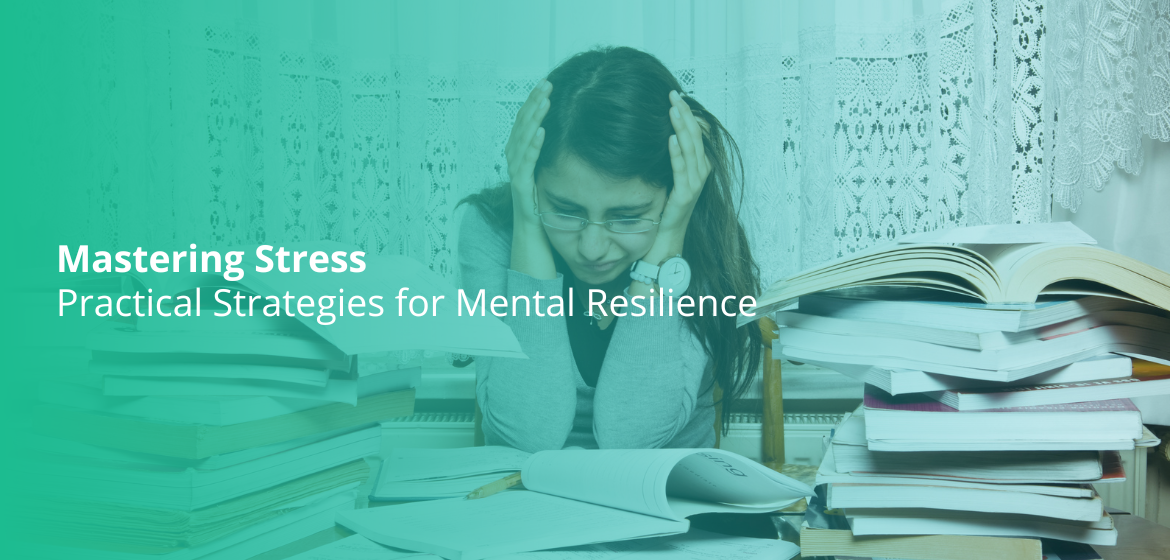
Stress Awareness Month: Insights and Coping Techniques
Stress Awareness Month serves as an important reminder of the significant impact stress has on mental, emotional, and physical well-being. Stress is a natural response to life’s challenges, but when unmanaged, it can become overwhelming and detrimental. Understanding stress from a psychological perspective allows individuals to develop effective coping mechanisms that foster resilience.
For students, stress is an inevitable part of academic and professional development. The ability to recognise and manage stress is essential not only for personal well-being but also for professional competency. Theoretical and evidence-based approaches from the field of psychology offer valuable insights into stress and its management.
What is Stress? A Psychological Perspective
Stress is the body’s response to a perceived threat or challenge, activating the autonomic nervous system and triggering the fight-or-flight response. While stress can be a motivator in short bursts, chronic stress can have long-term negative effects on both mental and physical health.
From a psychological perspective, stress is often explained through different models:
- Lazarus’ Cognitive Appraisal Model: This theory suggests that stress arises when individuals assess a situation as exceeding their ability to cope. The model differentiates between primary appraisal (evaluating the significance of the stressor) and secondary appraisal (assessing coping resources).
- Selye’s General Adaptation Syndrome (GAS): This model describes the three stages of stress—alarm, resistance, and exhaustion. During the alarm phase, the body recognises the stressor and activates physiological responses. If the stress persists, the body enters the resistance stage, attempting to adapt. However, prolonged stress can lead to the exhaustion stage, increasing the risk of burnout and health problems.
- The Diathesis-Stress Model: This framework explains how individual vulnerabilities (biological or psychological predispositions) interact with stressors, potentially leading to mental health disorders if coping mechanisms are insufficient.
How Stress Affects Students
Students often experience unique stressors. Academic pressures, practical training, and the emotional demands of engaging with intense subject matter contribute to high levels of stress.
Some common stressors faced by students include:
- Academic workload: Balancing coursework, research, and exams while maintaining self-care can be overwhelming.
- Self-doubt and imposter syndrome: Many students question their abilities, leading to increased stress and anxiety.
- Time management challenges: Juggling academic commitments, practical experience, and personal life can be difficult.
Recognising these stressors and implementing coping strategies is vital to maintaining mental resilience and ensuring long-term success in the field.
Evidence-Based Stress Management Techniques
Psychological research provides a variety of effective stress management techniques that can help students navigate academic and emotional challenges. The following evidence-based strategies are particularly relevant for students:
- Cognitive-Behavioural Therapy (CBT)
- Identifying and restructuring negative thought patterns to foster a more positive outlook.
- Practising self-compassion and challenging irrational beliefs related to self-worth and competence.
- Engaging in problem-solving strategies to approach stressors constructively.
- Mindfulness and Meditation
- Engaging in mindfulness practices, such as deep breathing and body scans, to remain present and reduce anxiety.
- Incorporating meditation techniques to promote relaxation and increase emotional regulation.
- Using grounding exercises, such as the “5-4-3-2-1” method, to manage overwhelming emotions.
- Time Management Strategies
- Setting realistic goals and prioritising tasks to prevent procrastination and last-minute stress.
- Breaking larger tasks into smaller, manageable steps.
- Utilising time management techniques such as the Pomodoro Method to maintain focus and prevent burnout.
- Physical Activity & Nutrition
- Engaging in regular exercise to release endorphins and improve mood.
- Maintaining a balanced diet to support brain function and overall well-being.
- Ensuring adequate sleep, as rest is crucial for cognitive function and emotional resilience.
- Supervision & Peer Support
- Engaging in regular supervision to process emotional responses related to training and practice.
- Seeking peer support and discussing challenges with fellow students to gain perspective and reassurance.
- Recognising that seeking help and leaning on others is a sign of strength, not weakness.
Building Resilience: Long-Term Approaches to Stress Management
While short-term stress management techniques are beneficial, developing long-term resilience is essential for sustained well-being. Some strategies to cultivate resilience include:
- Developing emotional intelligence: Understanding and managing one’s emotions can help prevent stress from escalating.
- Practicing gratitude: Focusing on positive aspects of life can shift perspective and reduce stress.
- Setting boundaries: Learning to say no to excessive commitments and prioritising self-care.
- Engaging in reflective practices: Journaling, therapy, or self-assessment exercises can enhance self-awareness and emotional growth.
From Pressure to Peace: Building Healthy Habits for Stress Awareness
Understanding stress from a psychological perspective allows individuals to develop effective coping mechanisms that foster resilience. Students must be mindful of their stress levels and develop skills for stress awareness, given the emotional demands of their studies and future profession. By implementing cognitive-behavioural techniques, mindfulness practices, time management strategies, and peer support, individuals can build resilience and enhance overall well-being. Stress is an inevitable part of life, but with the right tools and mindset, it can be managed in a way that supports both personal and professional growth.
Developing a proactive approach to stress management and stress awareness not only benefits personal health but also ensures that future mental health professionals are equipped with the skills to help others






















